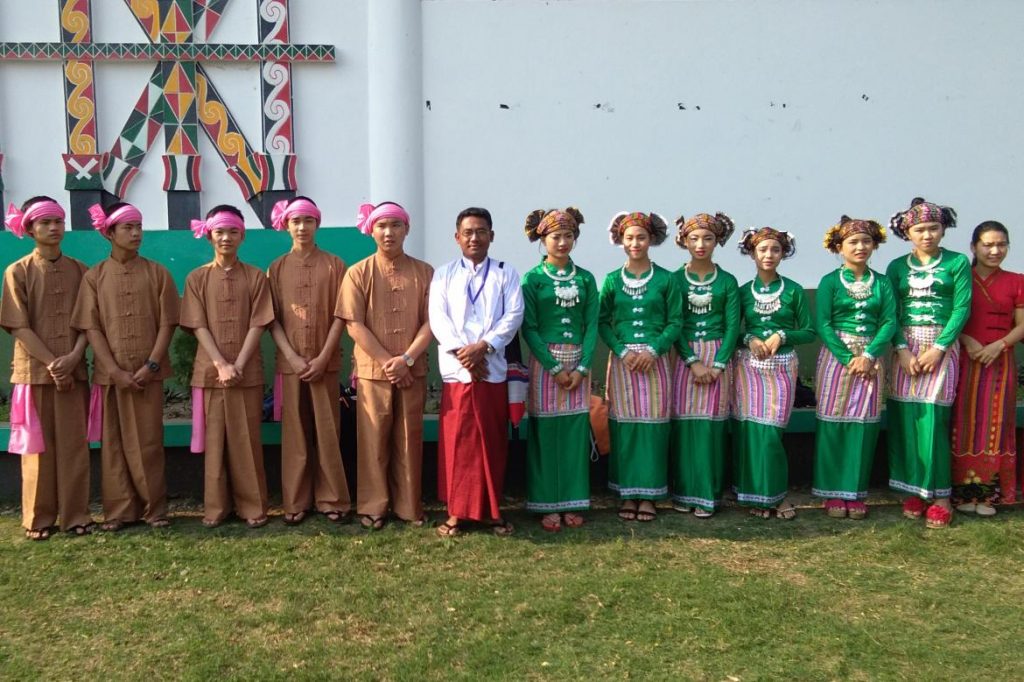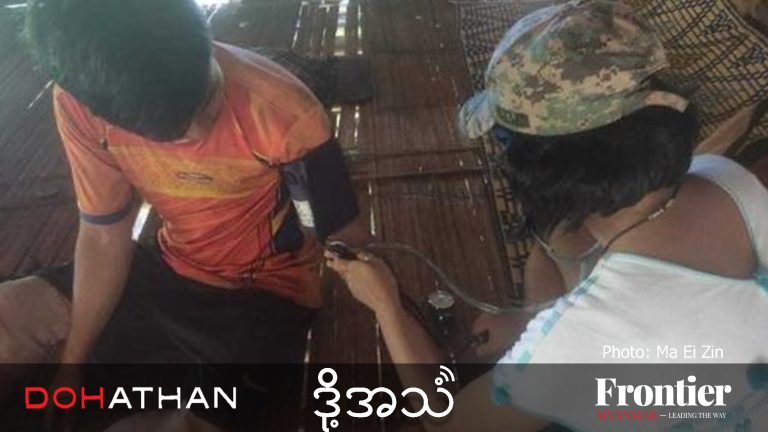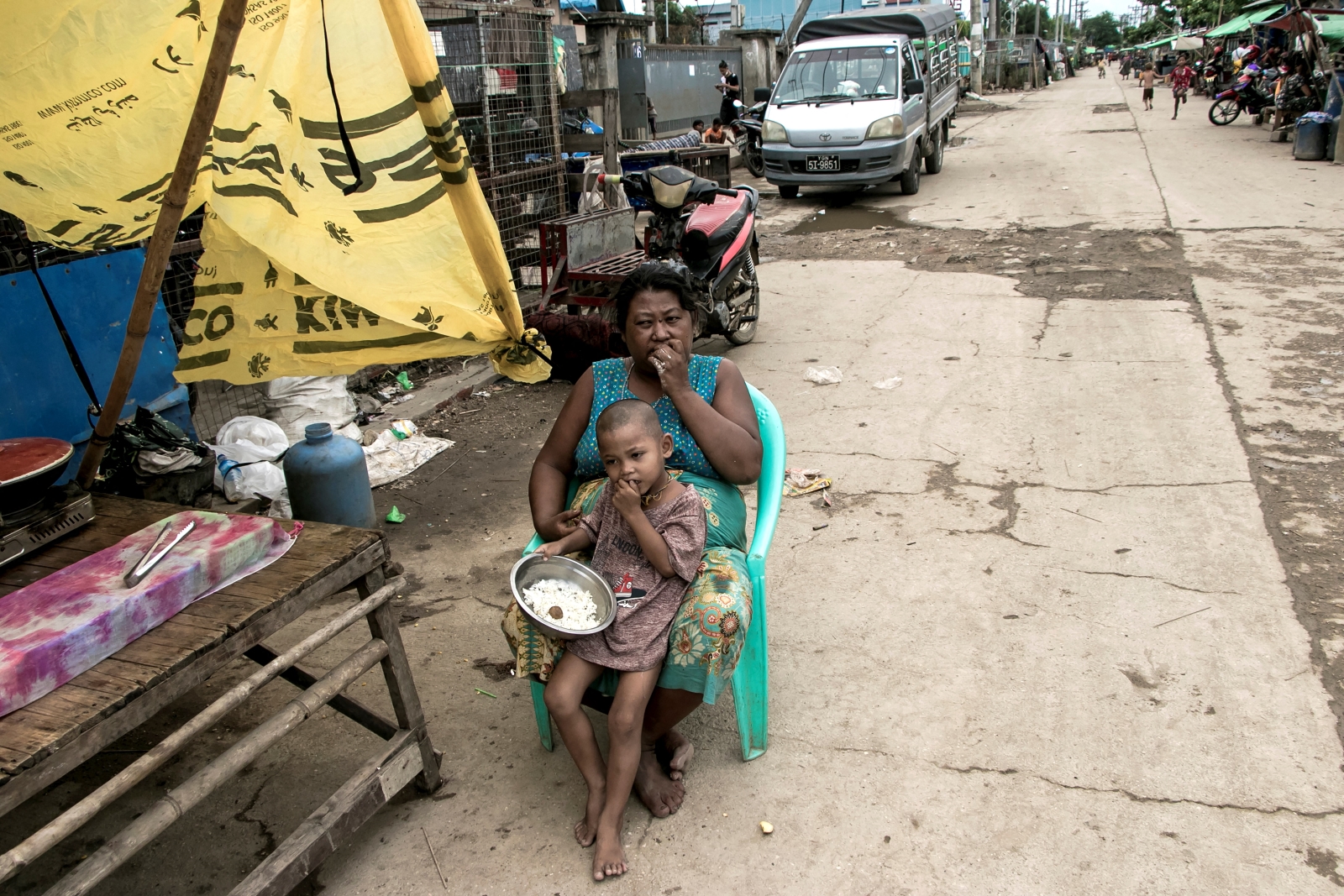By EMILY FISHBEIN | FRONTIER
MYITKYINA — Ko Thurain Tun, 21, and a group of four friends dream of founding an organisation to provide humanitarian relief, education, and skills programmes for conflict-affected communities in their home town of Ponnagyun in Rakhine State.
Yet, with the project stalled because of a lack of funding and escalating conflict between the Tatmadaw and the Arakan Army in Rakhine, Thurain Tun boarded a bus for a four-day journey to the Kachin State capital Myitkyina to attend a forum on peace.
On March 18, about 500 representatives from civil society groups based in 13 of Myanmar’s 14 states and regions gathered for the third Union Level Committee of Civil Society Organisations Peace Forum, a subsidiary event to the 21st Century Panglong Union Peace Conferences.
The forum, which was initiated by the Union Peace Dialogue Joint Committee (UPDJC) chaired by State Counsellor Daw Aung San Suu Kyi, ostensibly gives civil society the chance to contribute to the peace process.
Support more independent journalism like this. Sign up to be a Frontier member.
For Thurain Tun, the forum was an opportunity to talk about shared hopes for peace, not to discuss the escalating conflict back home.
However, many members of civil society, notably those from Kayah State that have boycotted all three events so far, consider it poor compensation for direct representation at Panglong. Participation in the main event is restricted to the government, ethnic armed organisations who have signed the Nationwide Ceasefire Agreement, and the Tatmadaw.
There is also discontent over the prescriptive nature of the forums. At each event, participants produce a set of policy papers to present to the UPDJC at a follow-up event, but discussion is limited to five topics set by the UPDJC, of which three were the focus of last week’s forum: land and natural resource policy, environmental conservation, and federalism. The topic of federalism is proscribed to include only fiscal matters.
Each state and region is allowed to send 35 representatives to the forum. Of these, four people from each state and region are designated as focal points. For an issue to move forward in the policy papers, unanimous consent from the focal points is required; unresolved items are tabled for the next forum. This provides a strong incentive for participants to set aside local interests and differences under a common goal.
But with debate unresolved over whether to stick to the UPDJC parameters, alternative terms of reference have been established, and both are now used concurrently.
Use of the alternative terms of reference may result in civil society losing representation in Panglong discussions, because any policy papers submitted to the UPDJC that do not meet the official criteria are liable to be sent back for further discussion.
Once a paper is approved, the UPDJC is expected to take its contents into account during the Panglong peace conferences. However, with no civil society representative present to ensure this happens, some civil society members fear their voices may not be heard.
Participants interviewed by Frontier were more eager to speak about the peace process than the three prescribed forum topics. U Moe Thu Aung, a focal point for Tanintharyi Region, said that everyone in Myanmar had a duty to try and achieve peace together.
“In Tanintharyi we don’t have war, but we still feel for the people in Shan, Kachin and Rakhine states,” he said.
Daw Naing Naing Lay Myint, a focal point from Mon State, also said it was important to put aside local issues and collaborate.
“We want to work together to solve the country’s difficulties related to peace-building and nation-building. Even though we all have our different issues, we all care about the same main issues, so we can find common ground,” she said.
Forbidden from deliberating over many of these critical issues at the forum, participants on March 20 released a 13-point advocacy statement in addition to the policy papers.
Their demands included the immediate cessation of conflict in Rakhine and Chin states, provision of access to conflict-affected populations for humanitarian groups, protection of historically significant places, the cessation of the Myitsone Dam in Kachin State and the resolution of the controversy over the statue of General Aung San in Kayah State.
By the end of the forum policy papers on land and natural resource policy and federalism were approved unanimously by all thirteen groups; the paper on environmental conservation was approved by all groups except for Chin State, which did not participate in that discussion because, according to Salai Mon Boi, a focal point from Chin State, the delegates present at the forum were not from Chin’s environmental groups and did not feel well equipped to represent their state on environmental issues.
The papers will be presented to the UPDJC at a follow-up forum in Nay Pyi Taw; dates for this meeting, as well as the next Panglong conference, have not yet been set. As the 13 additional recommendations are outside the three prescribed topics, it is unclear to what extent they will be considered at the higher levels.







